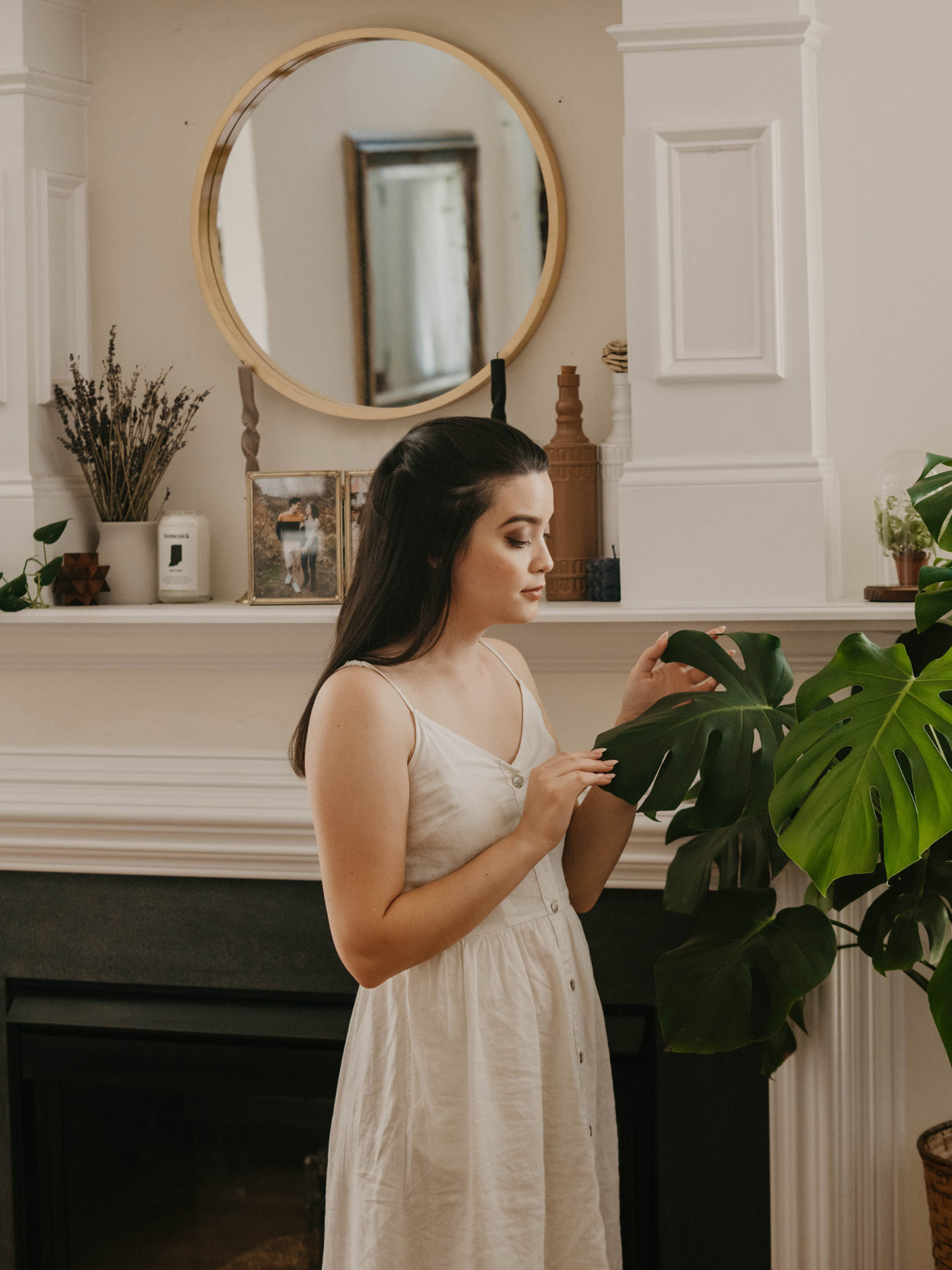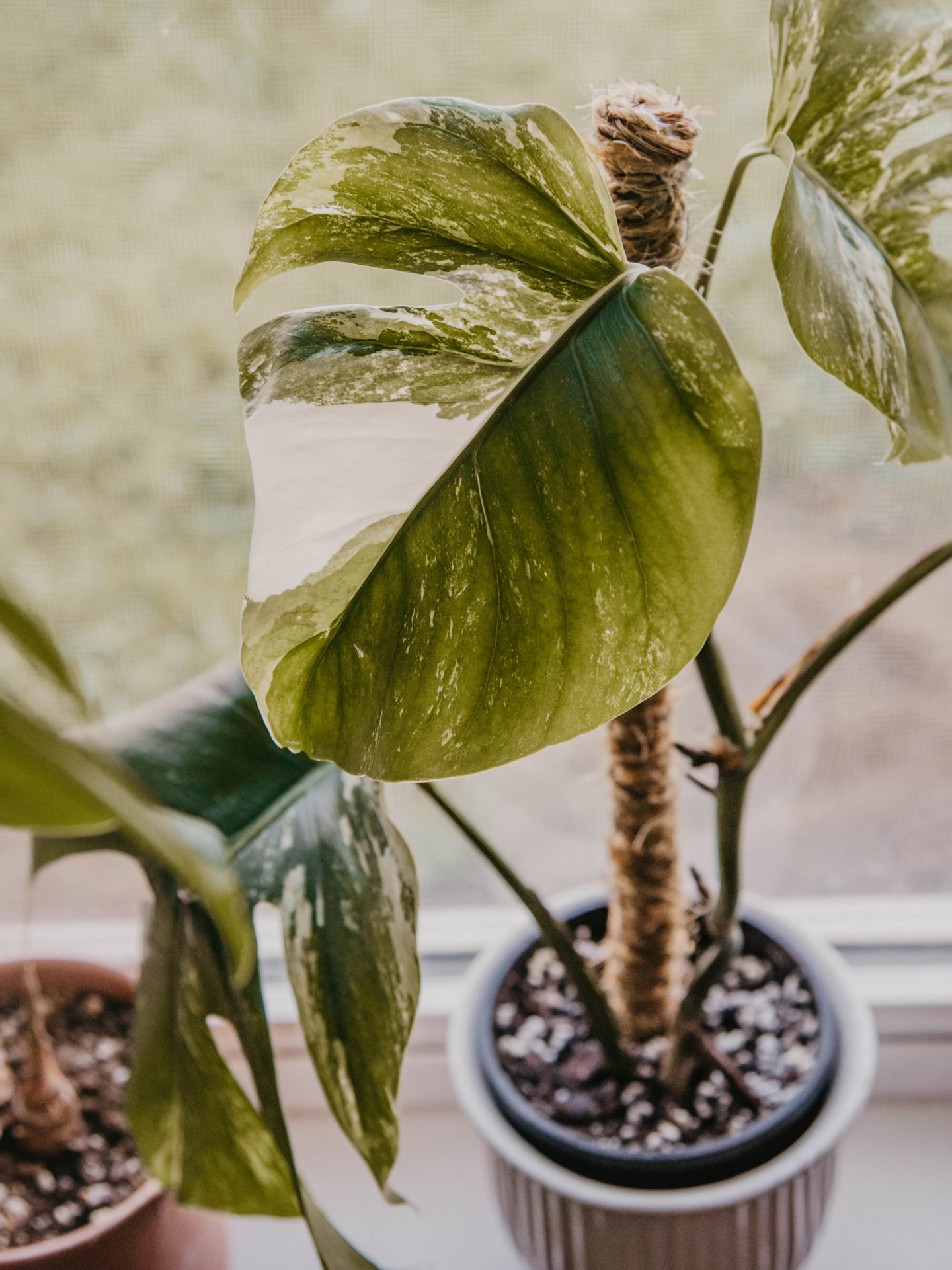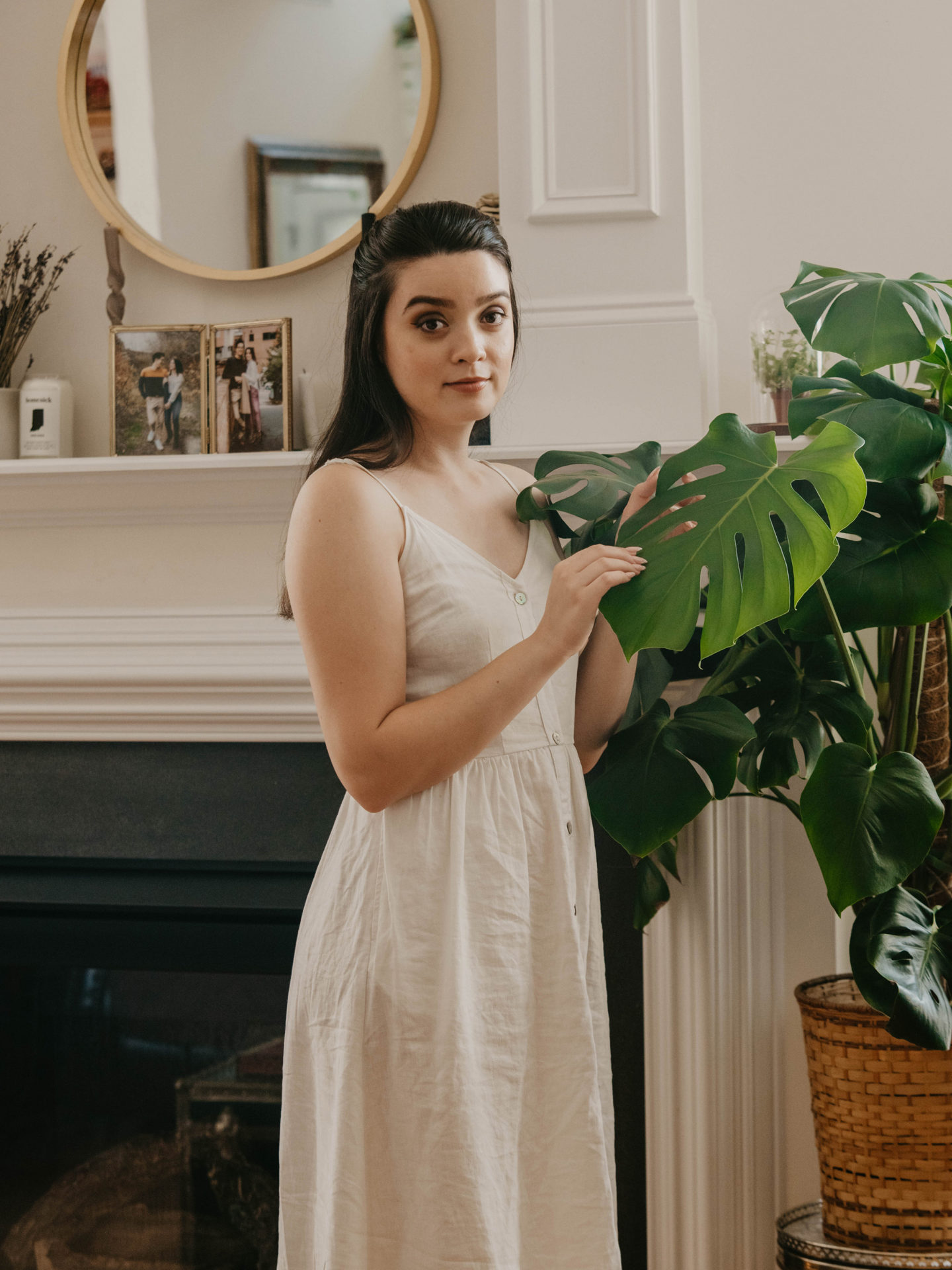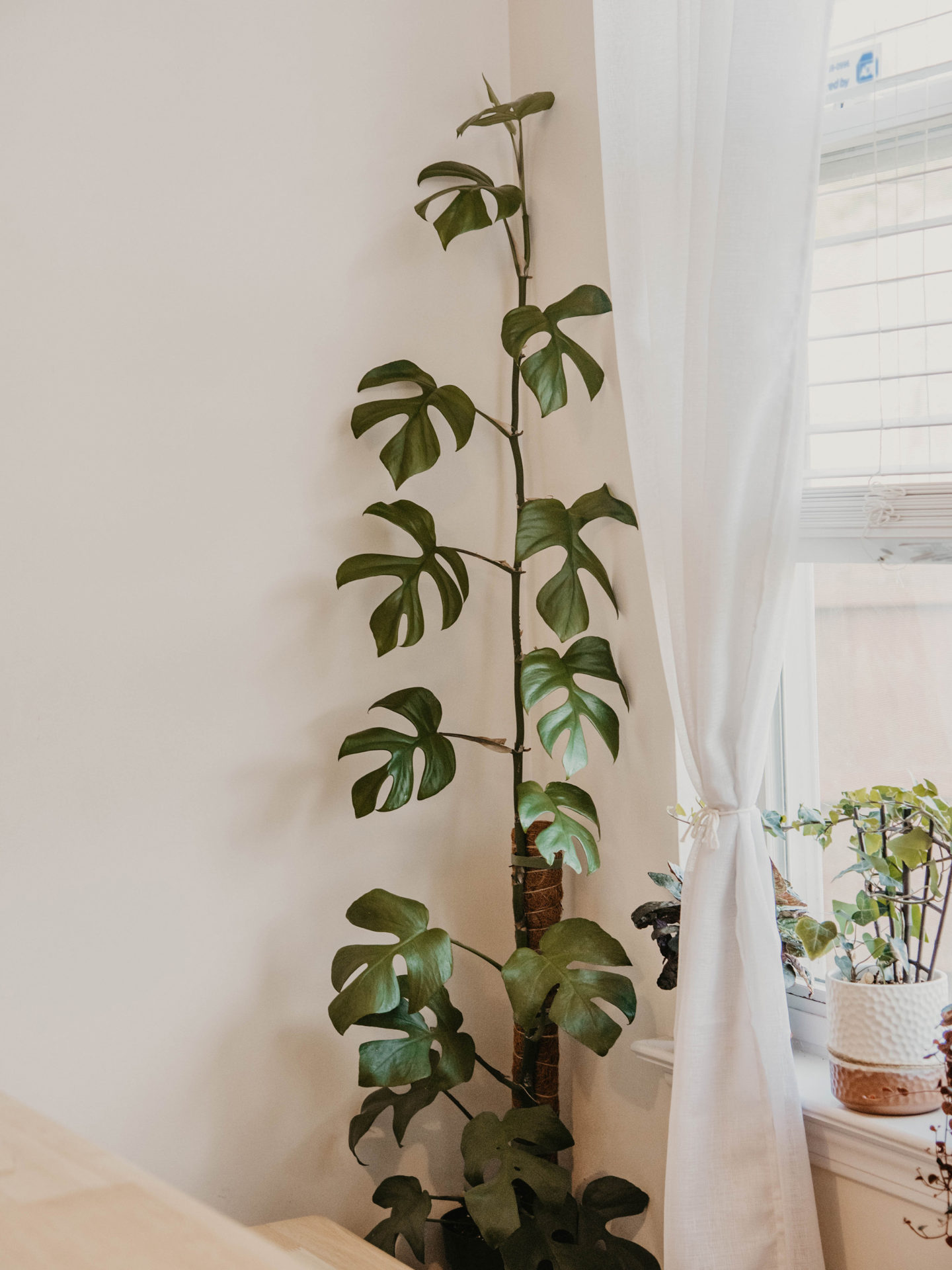
Indoor plants add beauty and dimension to your home or office space.
I find they also help me feel more relaxed and peaceful, too. After the events of 2020, it seems like more and more people are discovering the joy of being plant parents. It’s really not hard to keep them alive if you know your environment and the kinds of plants that would thrive in it. Today, I’m sharing a few simple do’s and don’t for houseplant care.

Do Quarantine Your Plants
To ensure the health of your other houseplants, do not bring home a new plant and cluster it with others. Sometimes new plants have undetected pests, or disease that can quickly spread to your other beloved plants. Keep them away from others for about a week or so and keep any eye out for any potential issues. I use neem oil to kill pests and yellow fly traps for little fungus gnats that could be living in your plants since the greenhouse.
Don’t Repot Right Away
One of the biggest mistakes you can make is repotting too early. You can damage the root system if it’s still trying to establish itself in the soil, killing the plant or causing severe damage to growth. I prefer to wait to repot into a larger pot or container when the plant is rootbound. Rootbound means the houseplant has grown too big for its current container and the roots are tangled or spiraled around the soil. The plant may also dry out much faster because there’s a lot of roots drink up any water it can find. If your new plant is rootbound repot into a container no more than 2 inches larger than the previous pot.
It’s okay to repot non-rootbound houseplants, if you are careful and are repotting the plant into a container of the same size as the nursery pot it came in. Too much soil can kick off root rot if it stays wet for too long between watering. I prefer to keep my plants in their nursery pots and place them inside of decorative containers. This hides the pots but keeps the plants happy.
Do Avoid Direct Sunlight
Understanding lighting requirements is key. But unless your plant description card says it needs 6-8 hours of full sun, it should not be in direct sunlight, ever. Direct sunlight can sun burn the leaves or cause irreparable damage to the houseplant as a whole. Nursery grown plants have not been exposed to direct sun, and improper lighting (whether it’s too sunny or too dark) can stress the plant out.
It’s important to provide your houseplant with the type of light it really needs to grow and thrive. In the summer, I leave out a few plants on my porch like my small fruit trees, my olive tree, silver dollar eucalyptus, and Touch-Me-Not. These plants are still in a covered area but they get a small dose of direct morning light each day.
There are houseplants that can tolerate low-light, but tolerating is the key word. Tolerating means they probably won’t drink up water as fast, and they won’t be quick to sprout new growth.
Don’t Water Immediately
Nurseries are pretty diligent about watering and I’ve found that sometimes they have a tendency to overwater, just a little. When you bring home new plants, don’t water them right away. As a general rule of thumb, wait until the top 2-3 inches of the soil are dry before watering.
You can use a watering can and water the top of the soil until water runs through the drainage holes. If you prefer a bottom watering method, sit the pot in a saucer filled with water and let the houseplant drink water until the top of the soil in moist. This watering method is slower, and can take anywhere from 30-60 minutes but my plants tend to like this method of watering more.
Do Fertilize – When Needed
If your plants aren’t doing well, that doesn’t necessarily mean that it needs to be fertilized. Consider other options – Inadequate lighting? Overwatering? Improper humidity? Temperature? When you bring home a new plant, if it’s been watered, it’s likely that it was also fertilized so it’s important to not over-fertilize your plant(s) once it’s home. I would wait 3-4 weeks before fertilizing new-to-your-home plants.
What are some of your favorite houseplants?
![]()

